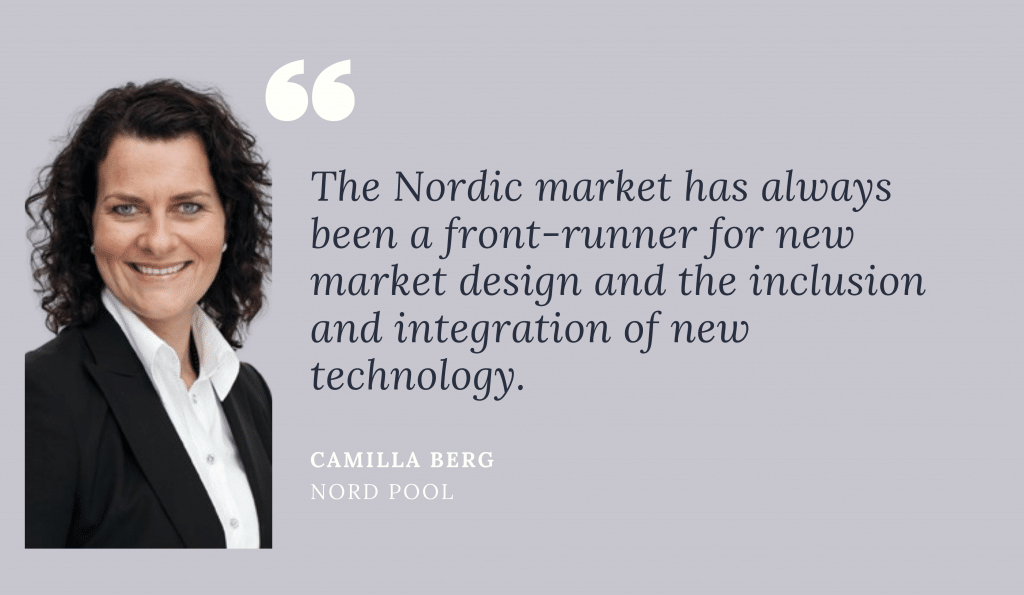In this article, Camilla Berg, General Counsel at Nord Pool, gives her insights into the Scandinavian markets experience in terms of demand response.
The ongoing energy transition, with the resulting penetration of renewable energy sources, requires a higher level of flexibility in the electricity markets. Demand, through a more active participation in the various electricity markets, is widely recognised as one of the best solutions to provide additional flexibility. If compared with traditional flexibility resources, demand participation is often cheaper and can contribute to lower electricity prices for final customers. Such participation, given the rapid development of smart-metering and ICT solutions, is no longer impeded by technological barriers. However, an enabling regulatory framework and one or more viable business models are needed.
In the context of the FSR Policy Workshop on ‘Demand Participation in Electricity Markets and Demand Response: Regulatory Framework and Business Models’ (27 October 2017), we asked Camilla Berg (Nord Pool) to give us an insight into the Scandinavian markets experience in terms of demand response.
“I would like to start with the general trends we at Nord Pool see which is that most new production is entering the grid at DSO level (PV, wind, batteries). The rise of electric vehicles, which are going to become increasingly common in the next five years, will place significant fresh demand on local grid infrastructure. Current estimates of required investment in the European grid to manage that increased demand are enormous, however, many of those investments will be to meet peak demand. The day-ahead market — arguably the backbone of the current spot market — looks increasingly outdated when significant levels of intermittent renewables are coming into play. The intraday market, on the other hand, has seen significant volume growth in Germany where 15 minute products have provided additional tools for producers and consumers to trade out imbalances at the wholesale level. However, the intraday market does not solve congestion issues at a “local” level. There is a clear need for an additional local market that operates “below” the existing wholesale market.
The Nord Pool team is seeing huge activity on DSR in Scandinavia. Several pilots have been tested and a lot effort is going into different research activities. That means a combination of new technology to control demand, smart metering and general ongoing digitalisation, which makes this a key focus area for aggregators, technology providers and existing utilities.
The Nordic market has always been a front-runner for new market design and the inclusion and integration of new technology. I very much anticipate that this also could be the case for DR and how we establish governance between the different stakeholders in this chain.
The flex market will work at DSO level “behind the meter”. This is an area that is currently unregulated by the European Union. The flex market uses new technology such as artificial intelligence, machine learning, IoT devices and smart phones. The market is autonomous and highly automated. There is no conventional trading, rather consumers would set their “comfort” requirements through an app (and/or similar modern device) and the market will translate this to an order book including a locational parameter. DSOs, TSOs and balancing responsible parties are likely counterparties to this trading, requiring flexibility to meet their different obligations. It is clear to us that flexible hydro production and DSR can go hand-in-hand.
The Nordic market has always been a front-runner for new market design and the inclusion and integration of new technology. I very much anticipate that this also could be the case for DR and how we establish governance between the different stakeholders in this chain.
Want more from #LightsonWomen?
Check out the Lights on Women blog
Don’t forget to use our hashtag #LightsonWomen to spread the word!







